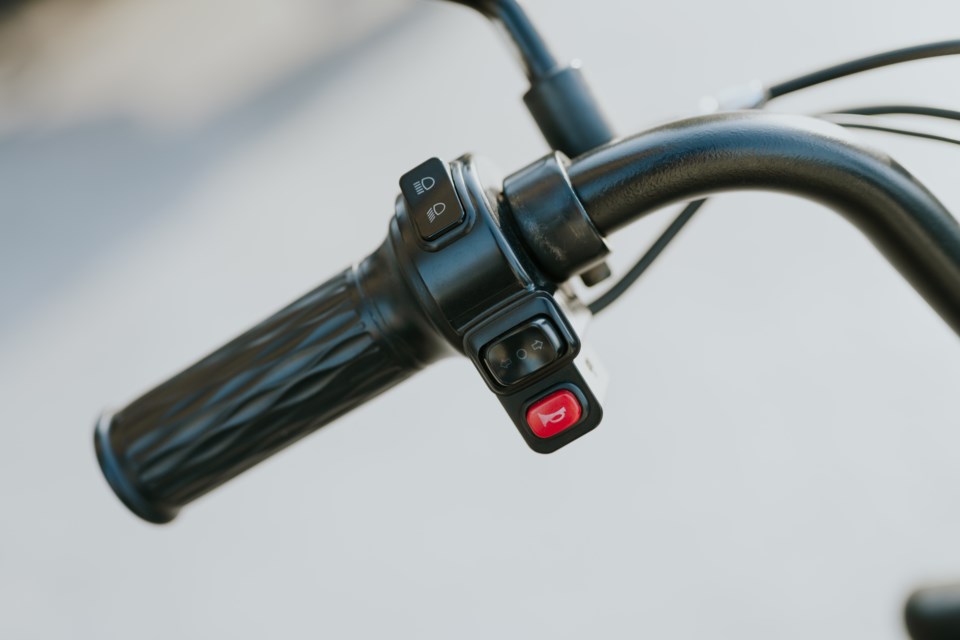A woman whose spouse died in a Vancouver apartment fire is suing multiple companies alleging a defective lithium ion battery ignited the blaze that took his life.
In one of three notices of civil claim filed in B.C. Supreme Court on Jan. 30, Kellyanne Sharples said she and her partner Tim Lilley used an electric bicycle designed and manufactured by Daymak to get around. The couple also owned several two-wheeled vehicles that used the same type of battery. They had four battery packs stored under their living room table.
On Jan. 30, 2022, Sharples went to bed. No batteries were charging, state court documents.
Lilley returned later that night on the Daymak bike, and brought a battery inside.
Sharples was awakened by a bang and Lilley. It was Lilley who went to see what happened and was soon yelling “fire” and telling her to get out.
Sharples said she called to Lilley but got no response.
“She tried to crawl toward him in the living room but was driven back into the bedroom by heat, thick smoke and flaming projectiles — loose battery cells including those from the e-bike — which struck her legs, causing burns,” the claim said.
Sharples said she escaped by shattering a bedroom window and climbing across a ledge four storeys above the ground to a neighbour’s balcony.
While the claim said none of the battery packs were charging, it said if one begins to overheat, that can affect other packs and cause a chain reaction.
“Jets of flaming gas venting from the tops of cells in the e-bike battery turned each into a tiny, unguided metal rocket," said the court documents.
“These loose cells ricocheted around the room, igniting new fires and spreading the blaze radically and erratically, trapping the plaintiff and Mr. Lilley,” the claims said.
The events caused a “flashover” in which “every exposed flammable surface in a room ignites simultaneously.”
Together, they name Greenwit Technologies Inc., Shenzhen Minyu Energy Technology Co. Ltd., John Doe Company No. 1, John Doe Company No. 2, Daymak, Inc. and Surrey’s Royer Batteries Corporation as defendants.
Sharples alleges she contacted Royer about repairing several batteries on June 19, 2021. She said five batteries were serviced and returned to the couple. She said the last of the batteries was returned a week before the fire.
In the claim against Abbotsford’s Greenwit Technologies Inc., China-based Shenzhen Minyu Energy Technology Co. Ltd., John Doe Company No. 1, John Doe Company No. 2, the claim alleges the batteries were designed, manufactured, marketed and sold by the defendants.
Sharples alleges Greenwit sold the plaintiff two e-scooters with rechargeable lithium ion battery packs.
In the claims against Daymak, Inc. and Royer Batteries Corporation, it is alleged Daymak designed, manufactured, distributed, marketed and sold the incident battery as well as the charger which was powering the battery when it overheated and exploded.
The claims assert Daymak owed a duty of care to ensure the batteries are safe, and that it failed to ensure materials from suppliers were safe and failed to warn customers of battery hazards.
That claims allege Royer inspected and serviced the battery before its alleged failure. They assert Royer failed to repair the battery properly and failed to warn the plaintiff that a blown fuse was indicative of a previous charging problem.
None of the allegations have been proven in court.
Greenwit, Daymak and Royer did not respond to requests for comment by deadline.

